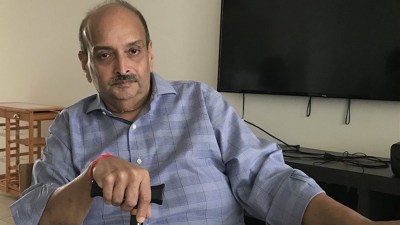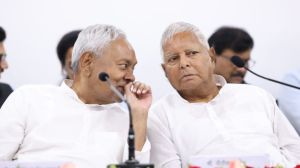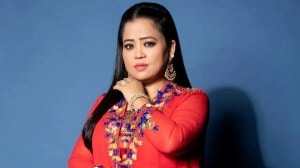Elwin and Kosi were incompatible
Has someone who has spent many years studying the life and work of Verrier Elwin, I read with interest Raman Kirpal's story of his first ...

Has someone who has spent many years studying the life and work of Verrier Elwin, I read with interest Raman Kirpal’s story of his first marriage (IE, March 4-5). The relationship between the Oxford scholar and the tribal lass was marked by enchantment and sorrow — on both sides. Alas, Kirpal has presented a partisan account, in which all the good accrues to the Gond girl and all the evil to the English writer.
The report lays three principal charges — that Elwin was only interested in Kosi as a means to understanding the tribals, that he left her for another woman, and that he was a prosperous man who should have made provision for her needs. The truth is rather more complicated. When Elwin met Kosi, in 1939, he had already completed his finest book, The Baigas, with which Kosi had nothing to do at all.
They were married in April 1940, and Kosi did vitally help Elwin in his research in Bastar between 1940 and 1943. But it is untrue to say that the anthropologist abandoned her when he was through with his work on aboriginals sometime in 1950-’51. In fact they were divorced in 1949, by a verdict of the Calcutta High Court, and Elwin continued to study and write on the adivasis till he died in 1964. Indeed, his most effective work on behalf of adivasi rights was done in the last decade of his life, when he was Anthropological Adviser to NEFA (now Arunachal Pradesh).
Elwin’s policies of respect for tribal culture and autonomy are one prime reason why Arunachal, alone among the states of the region, has not (yet) experienced an insurgency. His contributions to scholarship and to making the educated Indian aware of the rich culture of the tribals are well recognised. So is his personal commitment. It was Jaipal Singh, the great leader of the Jharkhand adivasis, who once stated in the Lok Sabha that “Dr Verrier Elwin is now more tribal than Jaipal Singh.”
Why then did Verrier and Kosi divorce? The first few years of their marriage were happy, but then the essential incompatibility began to show. Between 1943 and 1946 Elwin did field research in Orissa, usually unaccompanied by his wife. He returned home to Patangarh only to write his books. “I did not marry a typewriter”, remarked Kosi once, and sometime in 1945 began an affair with a local shopkeeper, Sahid. In 1946 these two had a child named Vijay. Elwin adopted the child as his own but after Kosi’s affair continued, he asked for and obtained a divorce. He took with him Kosi’s first child Kumar, who was also his, while she went off with Sahid and the second boy. Tragically, Kosi was later abandoned by her lover. She then went back with Vijay to her maike, her natal village, Raitwar.
It was in Raitwar that I interviewed Kosi and Vijay last year, and it is in Raitwar that Kirpal has met them now. Their situation is deeply moving. The mother, once married to a famous scholar and friend of the powerful, is spending out her days amidst the poverty and obscurity in which she was born. Perhaps Vijay’s situation is more poignant still, for he lives out the fiction, which he knows to be a fiction, that he is actually Elwin’s son.
From Kirpal’s account one might get the impression that Elwin was a wealthy man. As it happens, he was often desperately short of cash. The house in Jabalpur was bought well after the break-up with Kosi, and Elwin always intended it to be for his friend Shamrao. The `palatial house’ in Patangarh was actually a regular Gond mud home, of which no sign now exists, as it has crumbled with time and the monsoon as such houses generally do.
Elwin’s second marriage was to a girl from Patangarh, not (as is claimed) from Shillong. And both the High Court in Jabalpur and the Supreme Court in New Delhi ruled that Elwin’s divorce to Kosi was legal, and that she or Vijay had no claim to the book royalties that were his main assets.In the prevailing political climate, it is all too easy to represent the Elwin-Kosi encounter as one of the anthropologist exploiting his subject, the Oxford scholar dominating his tribal wife, and the Englishman being arrogant towards the Indian. These are all gross simplifications of a complex story.
Guha’s latest book is, `Savaging the Civilised: Verrier Elwin, His Tribals and India’ (Oxford University Press)
Top



- 01
- 02
- 03
- 04
- 05




























